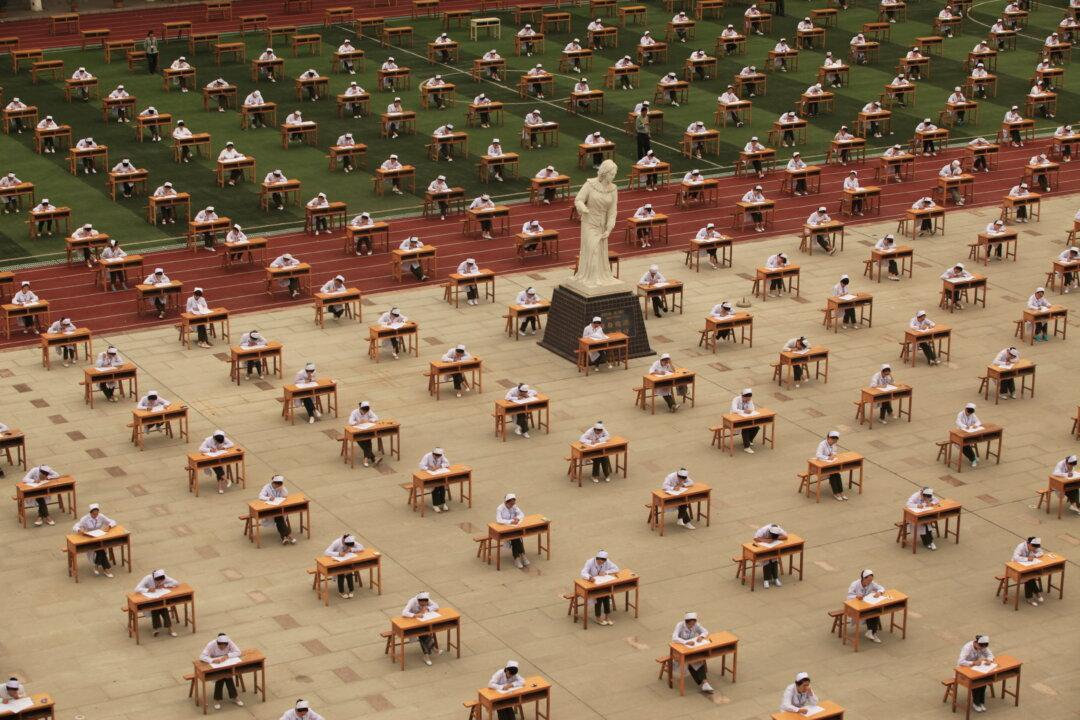When the Southern Metropolis Daily, a Chinese newspaper, sent an undercover reporter into this year’s round of nationwide university exams, it unveiled the workings of a group of professional test-takers.
Hired test-takers, known colloquially as “hired guns” are paid to take exams for others to get better scores. Many such “gunmen” are university students who earned high scores in the grueling entrance exams, or gaokao, as they are known in Chinese. Though admitted by high ranking universities, these students tend to be from struggling financial backgrounds.
Over 10 “gunmen,” including the undercover reporter, were hired by the test-taking ring from several high-tier universities in central China’s Hubei Province, according to the Southern Metropolis Daily. They were arranged to take the university entrance exam from June 7 to 9 at different test centers in southeast China’s Jiangxi Province.
The ‘Gunmen’
One of the hired test-takers told the reporter that he was in his senior year of university; he had been a gunman for those taking the gaokao since his first year of study. Coming from a poor family, the student has earned over 100,000 yuan ($16,122) from this job.
The group determined payment to the “gunmen” based on their scores. For instance, scores that grant admittance of the first tier universities in Henan Province would be paid 25,000 yuan ($4,030), while scores sufficient for second tier universities in earned the gunman 20,000 yuan ($3,224).




